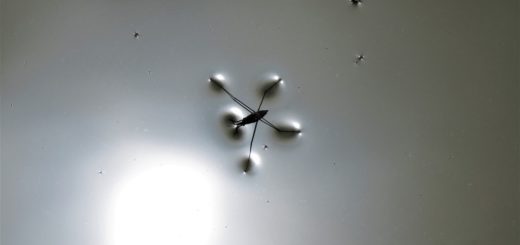On Our Modern Saints
Few things frustrate me more than attempts to leap over common sense and honest appraisal with the shorthand of collective beatification for certain classes or groups within society. For progressives, the sainthood-bound groups include teachers and “activists.” For conservatives, the saintly groups are “cops” and “our brave men in uniform.” Both sides, meanwhile, will always race to outdo each other in fawning gratitude and prayers for nurses.
What a load of rubbish. The last time I checked, each of those groups was comprised of flesh and blood humans, and in case you haven’t noticed, flesh and blood humanity is a flawed and weak band, never more obviously so than today.
I will state for the record that, like many of you, I have friends or family, and in some cases people very close to me, in each of those groups. But an emotional vested interest in a particular nurse or teacher no more justifies genuflecting before all nurses or teachers than it would if the person you happened to care about was a plumber or a banker.
And if you wished to defend this practice of ascribing saintliness to certain groups by drawing a distinction among them based on the relative nobility of certain professions compared to others, that would only strengthen my objection. For the fact that certain professions are also “vocations,” in the sense of demanding a kind of spiritual attachment to the work that is not required of, say, the plumber or the banker, in no way proves that any given individual within that profession, let alone every individual, is of that noble, vocation-motivated sort. On the contrary, in an age of mass society, mass education, and mass employment, one should expect the opposite, namely that any given profession will be increasingly dominated by individuals who do not undertake these nobler professions out of any sense of vocation, but for other, far more earthly and pragmatic reasons.
In the case of education, for example, this is literally built into the program. John Dewey, popularly dubbed The Father of Modern Education, made it a matter of pedagogical principle that teachers-in-training ought to be indoctrinated not to see themselves as anything more than humble worker units in the education industry, thus reducing the chance of devoted individuals taking too great an emotional interest in their students, i.e., caring too much about what they are being forced to do to these students by the overlords of compulsory schooling, and therefore mucking up the mass socialization process.
Are there deeply devoted and sincere teachers who place their students’ wellbeing above more pedestrian concerns, or indeed above almost all other concerns? Yes, of course there are. And such teachers might comprise (to be optimistic) about a tenth of a percent of all the professional teachers in any advanced nation. The vast majority of working teachers will be people who, while they may take a certain pride in “doing their job well” (however that may be defined), are no more dedicated to the souls of their students than your plumber is to the quality of your home’s drainage system. Whether this is a function of the intrinsic limitations of modern mass education or of the materialistic self-interest of the professional teachers is not important in this context. What matters is that glorifying or deifying teachers (in the everyday professional sense of that word) as an inherently noble class of humans is utterly ridiculous.
The same goes for police officers. In the old days, when I used to be a regular listener to Mark Levin’s radio program, there was perhaps only one thing that made me bristle more than his trivial, unenlightened criticisms of Plato, and that was his phony, Everyman-baiting praise of “the cops.” It hardly takes a great imagination to perceive that a great proportion of young men who opt for policing as a career are doing so not primarily out of any heroic desire to serve as their communities’ protectors, or out of any deep devotion to liberty and the rule of law, but rather out of a certain unhealthy need to feel big and powerful, combined with an immature, bully-like inclination to push people around and get away with it, and of course a desire for a socially respectable job that does not demand a lot of advanced learning.
Are there noble and honorable men working as police officers in every police force around the semi-civilized world? Absolutely, and they deserve high praise for their service. Do such men of character and worth comprise the majority of the police force in any major city or small town on Earth? Don’t waste my time. Most police officers, as we are being reminded regularly right now the world over (except Sweden), are a rough mix of Adolf Eichmann and the punk in eighth grade who used to intimidate younger children into handing over their lunch money. (The same, I would say, is also approximately true of the military, at least as comprised during a time of relative peace.)
And in my personal experience — and probably yours too, if you are willing to be honest — there is no group of professionals who have provoked more genuine immediate anger in my soul than nurses. I have had several opportunities to spend significant time in healthcare institutions visiting or tending to very ill or elderly people. In each and every case, I have been disturbed, sickened, and often enraged almost beyond my considerable capacity for self-control, by the behavior, words, and intentions of many of the presiding nurses. Again, as with the previous examples, I have seen wonderful exceptions — genuinely dedicated women pursuing a vocation — and also many relatively benign, though benighted, worker bees sincerely trying to do “a good job,” though without any great attachment to their mission. But when push comes to shove, and the attitude and competence of the nurses is most important, I have been disturbed, sickened, and enraged far more often than I have been impressed, or even satisfied, with the efforts of the “frontline workers.”
There are “saints” in such professions, but in very tiny proportions. There are also “salt of the earth” types, but again they are a minority. The majority are mere wage-earners at best, cynical and petty power-seekers at worst. I will leave it to the reader to determine for himself the ratio of wage-earners to petty cynics in each profession. But make no mistake: the majority will inevitably belong to one of those two subcategories.
We must therefore reject all attempts to gloss over some of the worst actors in our societies — “essential workers” who abuse their authority or make a mockery of their own professions — by portraying them collectively as heroes or saints, as though the social importance of the work necessarily implies any spiritual superiority in the worker. To see how utterly untenable and illogical this inference from the nobility of the profession to the nobility of any given professional really is, consider that there are very few societal roles truly nobler in their purpose or potential than that of statesman. Need I say more?


